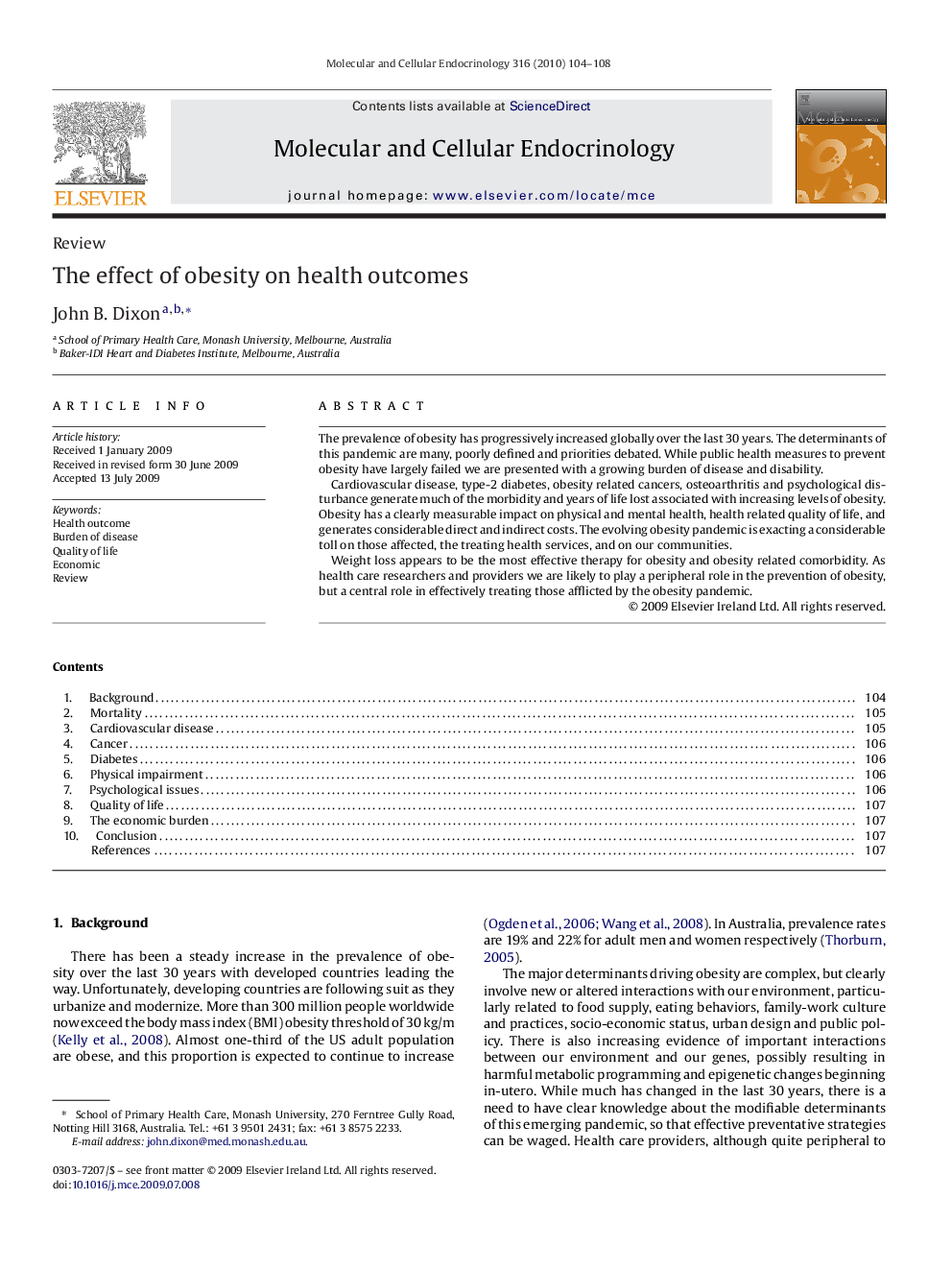| Article ID | Journal | Published Year | Pages | File Type |
|---|---|---|---|---|
| 2197073 | Molecular and Cellular Endocrinology | 2010 | 5 Pages |
The prevalence of obesity has progressively increased globally over the last 30 years. The determinants of this pandemic are many, poorly defined and priorities debated. While public health measures to prevent obesity have largely failed we are presented with a growing burden of disease and disability.Cardiovascular disease, type-2 diabetes, obesity related cancers, osteoarthritis and psychological disturbance generate much of the morbidity and years of life lost associated with increasing levels of obesity. Obesity has a clearly measurable impact on physical and mental health, health related quality of life, and generates considerable direct and indirect costs. The evolving obesity pandemic is exacting a considerable toll on those affected, the treating health services, and on our communities.Weight loss appears to be the most effective therapy for obesity and obesity related comorbidity. As health care researchers and providers we are likely to play a peripheral role in the prevention of obesity, but a central role in effectively treating those afflicted by the obesity pandemic.
